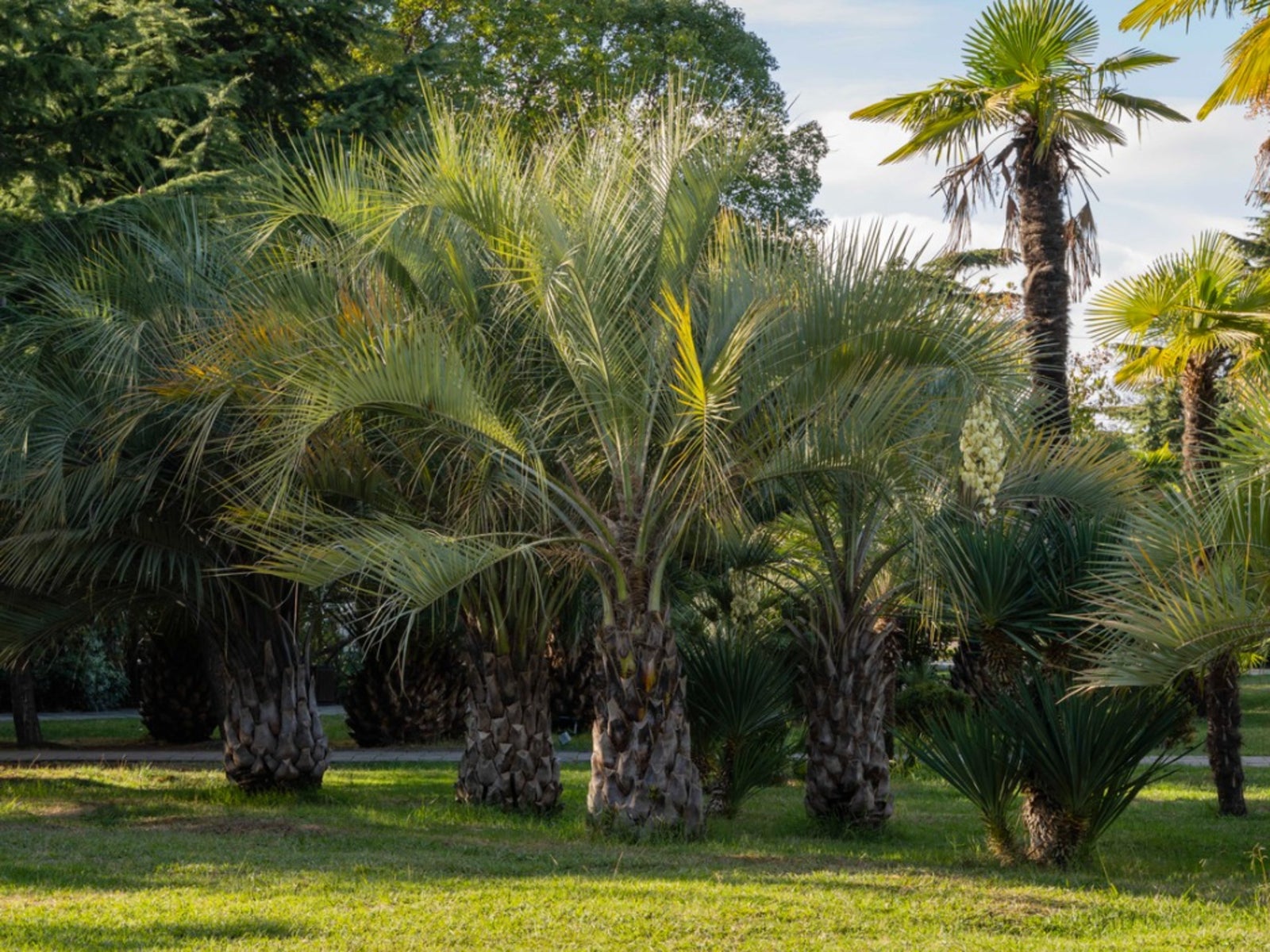Pindo Palm Fertilizer Needs – Learn How To Feed A Pindo Palm Tree


Sign up for the Gardening Know How newsletter today and receive a free copy of our e-book "How to Grow Delicious Tomatoes".
You are now subscribed
Your newsletter sign-up was successful
Pindo palms, also commonly known as jelly palms, are popular trees, especially in public landscapes. Famous for their cold hardiness (down to USDA zone 8b) and slow, low growth rate, the trees can often be found in highway medians, courtyards, and parks up and down the West Coast. They can also frequently be found in backyards and home landscapes. But these homeowners and gardeners may find themselves wondering: how much fertilizer does a pindo palm need? Keep reading to learn more about pindo palm fertilizer needs and how to feed a pindo palm tree.
How Much Fertilizer Does a Pindo Palm Need?
As a rule, palm trees do best with regular applications of fertilizer, and pindo palm fertilizer needs are no different. Sources vary a little bit, with some recommending monthly feedings, and others recommending less frequent feedings, only two or three times throughout the growing season. As long as you keep up a regular schedule, you should be fine. Fertilizing a pindo palm is only necessary during its growing season, when temperatures are high. The warmer your climate is, the longer this season will be, and the more times you will have to fertilize.
How to Feed a Pindo Palm Tree
When feeding pindo palms, it’s necessary to find the right fertilizer. Pindo palms do best with a fertilizer that is high in nitrogen and potassium (the first and third number on the label) but low in phosphorus (the second number). This means something like 15-5-15 or 8-4-12 would work well. It’s also possible to purchase fertilizers specially designed for palm trees, which are rich in micronutrients necessary for palm health. Pindo palms can often suffer from boron deficiency, which causes the tips of emerging leaves to bend up at a sharp angle. If you notice this deficiency, apply 2 to 4 ounces (56-122 g.) of sodium borate or boric acid every six months.
Sign up for the Gardening Know How newsletter today and receive a free copy of our e-book "How to Grow Delicious Tomatoes".

The only child of a horticulturist and an English teacher, Liz Baessler was destined to become a gardening editor. She has been with Gardening Know how since 2015, and a Senior Editor since 2020. She holds a BA in English from Brandeis University and an MA in English from the University of Geneva, Switzerland. After years of gardening in containers and community garden plots, she finally has a backyard of her own, which she is systematically filling with vegetables and flowers.